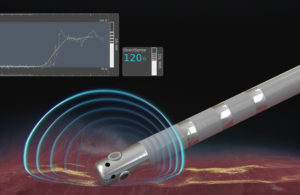
1. Boston Scientific: DirectSense
Boston Scientific launched its DirectSense technology in June 2020. The technology monitors the effect of radiofrequency energy during cardiac ablation procedures.
The system offers data on the impedance around the catheter tip to measure the ability of the tissue to respond to radiofrequency (RF) energy before physicians deliver therapy. It tracks local impedance change up to 4 mm during ablation to indicate how the tissue is affected to lead to a reduction in the chances of over-ablation and complications, according to the company.
DirectSense is available only on Boston Scientific’s Rhythmia HDx mapping system, which monitors electrical resistance around the tip of the IntellaNav MiFi open-irrigated ablation catheter.
